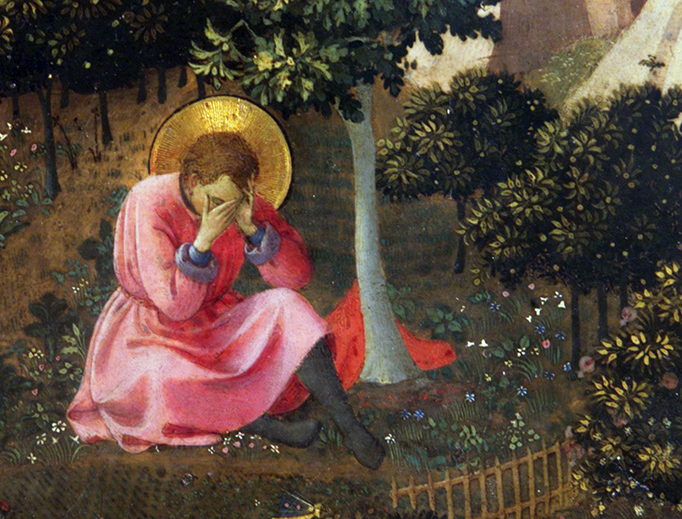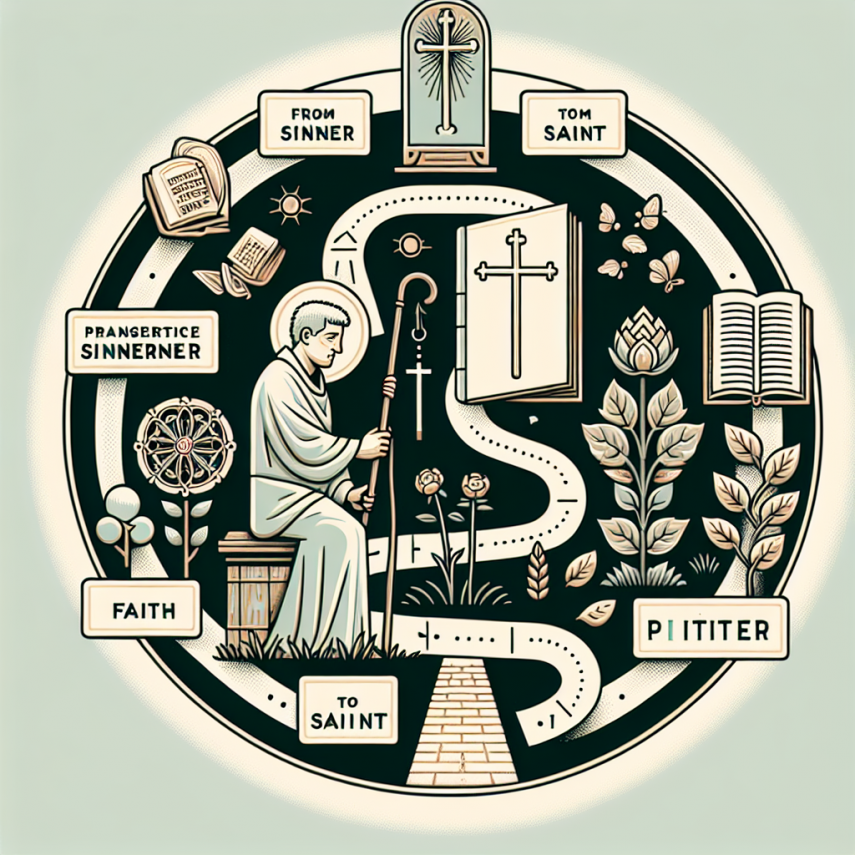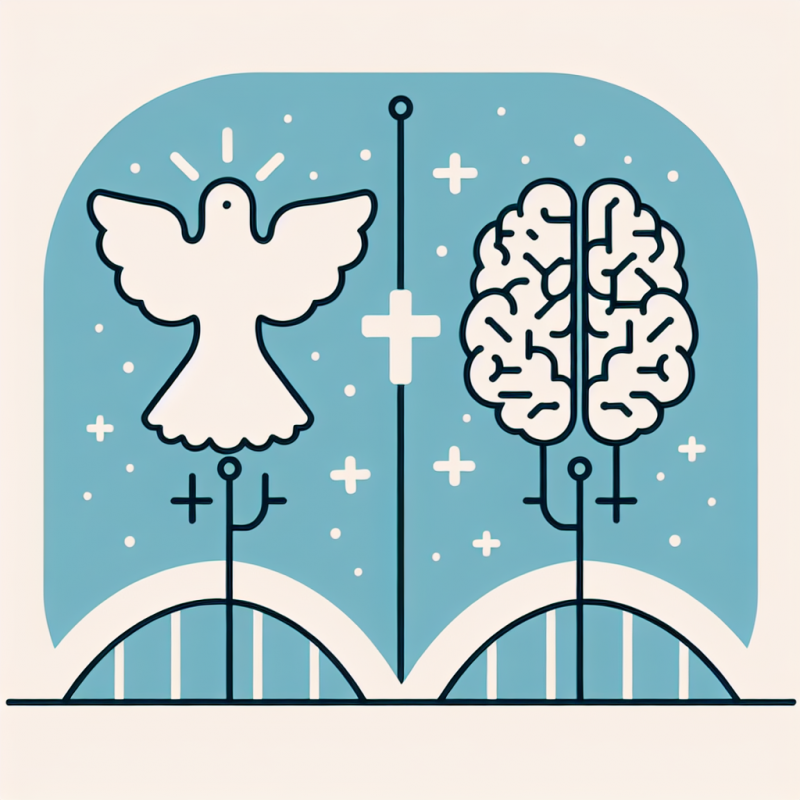Unraveling the Legacy of a Great Christian Thinker: Augustine of Hippo
Throughout the rich tapestry of Christian history, few figures have shaped Christian thought and practice as profoundly as Augustine of Hippo. A theologian, philosopher, and bishop of the early Christian church, Augustine’s reflections on faith, grace, and human nature continue to resonate within the pillars of Christianity and beyond. In this exploration, we delve into Augustine’s life, his seminal works, and the indelible mark he has left on Christian theology, drawing parallels to contemporary faith and my personal journey.
The Journey from Wayward Sinner to Pillar of Faith
Augustine’s early life was characterized by a restless search for truth, wandering through various philosophies and indulging in worldly pleasures. It was this journey of uncertainty and exploration that laid the foundation for his profound conversion to Christianity—a narrative that mirrors my own path from skepticism to deepened belief. Through his autobiographical work, Confessions, Augustine offers an intimate look into his transformation, highlighting the power of grace and the constant presence of God in our lives, even when we are not aware of it.

Innovations in Theology and Philosophy
Augustine’s theological and philosophical inquiries tackled some of the most enduring questions about God, free will, and evil. His thoughts on original sin, divine grace, and predestination have influenced not only Christian doctrines but also my understanding of human nature and God’s sovereignty. In City of God, Augustine juxtaposed the City of Man—marked by pride and earthly desires—with the City of God, where divine grace reigns. This dichotomy encourages believers to pursue a life aligned with God’s will, a principle that has guided me in reshaping my career and personal life towards greater alignment with Christian values.
Augustine’s Enduring Influence on Christian Thought
The ripples of Augustine’s influence can be felt through the works of subsequent theologians like Thomas Aquinas and in the doctrines of the Protestant Reformation. His writings have fostered an understanding of Christianity that emphasizes the importance of grace, the role of the church in salvation, and the quest for truth in Scripture. Reflecting on previous articles discussing Great Christian Thinkers, Augustine stands as a monumental figure whose ideas continue to shape our exploration of faith and the divine.
Augustine’s Relevance to Contemporary Faith
In a world brimming with scientific discoveries and technological advancements, Augustine’s journey reminds us of the harmony between faith and reason. Just as he used the intellectual tools of his age to deepen his understanding of God and Scripture, so too must we leverage our technological and scientific insights in service of our faith. Augustine’s life is a testament to the transformative power of conversion and the pursuit of truth—a message that resonates deeply with those of us navigating the complexities of modern belief and skepticism.
Reflections on Forgiveness and Grace
Among the many threads of Augustine’s thought, his reflections on forgiveness and grace have struck a particular chord with me. Echoing the challenges of personal betrayal and the arduous journey to forgiveness in my life, Augustine’s writings offer profound insights into the nature of God’s forgiveness and the necessity of extending grace to others. This process of forgiveness, deeply rooted in Christ’s teachings, has been a source of healing and renewal in my own spiritual journey.

Further Exploration and Resources
For those inspired to delve deeper into Augustine’s rich theological legacy, I recommend starting with his own works, particularly Confessions and City of God. Additionally, contemporary analyses and biographies can provide further insights into his enduring influence on Christian thought and practice. Engaging with Augustine’s writings can serve as a foundation for both intellectual and spiritual growth, encouraging a deeper understanding of our faith’s historical and theological heritage.
As we continue to explore the depths of Christian history and theology, let us draw inspiration from Augustine’s journey—from a life marked by searching and struggle to one of profound insight and influence in the Christian tradition. His legacy offers invaluable lessons on the power of conversion, the pursuit of truth, and the transformative power of God’s grace in our lives.
Final Thoughts
In the labyrinth of our spiritual journeys, Augustine of Hippo serves as a guiding light, offering insights into the mysteries of faith, the human condition, and the heart’s quest for God. Engaging with his work and life story, we find not only a mirror reflecting our own doubts and discoveries but also a map pointing us towards deeper understanding and communion with the divine.
As we build upon the discussions from previous articles on great Christian thinkers, Augustine’s story enriches our appreciation for the diverse and complex heritage of Christian faith, encouraging us to forge our path grounded in the wisdom of those who walked before us.
Focus Keyphrase: Augustine of Hippo




Hello, dear readers. I’m David M, and I wrote this piece to share the incredible journey and theological contributions of Augustine of Hippo. His story has deeply inspired me, particularly his path from skepticism to faith, and I hope it encourages you to explore the depths of Christian theology and its relevance to our lives. Augustine’s teachings on grace, forgiveness, and the pursuit of truth offer profound insights for our spiritual journey. I look forward to your thoughts and reflections on this venerable Christian thinker.
This article beautifully captures the essence and legacy of Augustine of Hippo. As someone who has devoted a significant portion of my life to studying early Christian thought, I find Augustine’s contributions to be as relevant today as they were in his own time. His ability to articulate the human condition and the power of grace speaks across centuries. Your piece not only highlights his life and works but also invites a deeper reflection on our own faith journey in the modern world. Thank you, David, for this insightful and thought-provoking read. – Rebecca Goldstein